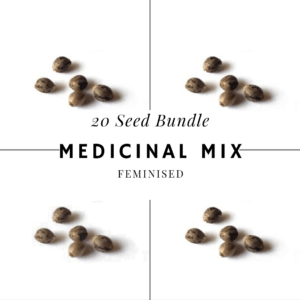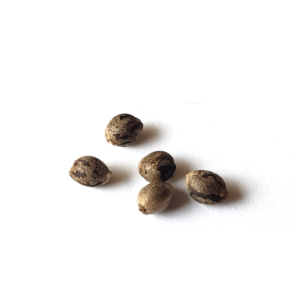Within recent years, CBD oil and cannabis have been gaining traction as potential alternatives to traditional pain relievers. As the opioid crisis continues to devastate communities, many chronic pain sufferers are seeking safer, non-addictive options for pain relief. But how do these cannabis-derived treatments compare to conventional pain management methods? In this blog post, we’ll explore the benefits and drawbacks of CBD oil and cannabis for various types of chronic pain, providing a comprehensive comparison to help you make informed decisions about your pain management journey.
Cannabis Pain Relief: Key Takeaways
Understanding chronic pain requires exploration of potential treatments, such as medicinal cannabis and CBD oil.
Studies have suggested benefits of CBD oil for treating various types of chronic pain, neuropathic pain relief, arthritis and joint pain relief, multiple sclerosis-related symptoms.
Healthcare providers offer personalised treatment plans with the use of CBD to ensure optimal outcomes and safety.
Understanding Chronic Pain

Chronic pain, defined as daily pain lasting for more than three months, affects millions of people worldwide and can significantly impact one’s quality of life. Struggling with daily activities, chronic pain patients often find it challenging to cope with severe chronic pain and persistent discomfort.
Treating chronic pain can be quite challenging, as pain perception is influenced by:
Biological factors
Emotional state
Social context
Prior experiences
Currently, available interventions for chronic pain include opioids for nociceptive pain and gabapentinoids or antidepressants for neuropathic pain, such as pain caused by spinal cord injury. However, these medications come with potential side effects, including the risk of abuse/misuse, and may not be as effective for certain types of pain, such as chemotherapy-induced neuropathic pain. This has led to increasing interest in exploring alternative treatments, such as medicinal cannabis and CBD oil, for chronic pain relief.
As the two major components of the cannabis plant, THC and CBD, have demonstrated potential benefits for various types of chronic pain, researchers have conducted over 100 studies to evaluate their effects. These studies have investigated the efficacy of medicinal cannabis products for conditions such as arthritis pain, neuropathic pain, and chemotherapy-induced neuropathic pain. However, more research is needed to determine the optimal dosage, formulation, and administration method for these products to effectively treat chronic pain patients.
One area of interest is the potential role of cannabinoids in modulating pain perception through the central nervous system. Randomised controlled trials have been conducted to evaluate the effects of cannabinoids on pain scores, with some studies indicating potential benefits for chronic pain patients. However, the overall quality of evidence remains low, with many studies suffering from potential biases and methodological limitations.
Delving deeper into the potential benefits of CBD oil and cannabis for chronic pain relief, we must remember that individual responses to these treatments can vary. Pain perception and relief are complex processes influenced by various factors, and what works for one person may not be as effective for another. Therefore, a personalised approach to chronic pain management is crucial to ensure the best possible outcomes for each patient.
CBD Oil: A Promising Solution for Cannabis Pain Relief?

Derived from the cannabis plant, CBD oil has shown promise in treating various types of chronic pain, including neuropathic pain, arthritis, and multiple sclerosis-related pain. The upcoming sections will provide a more detailed exploration of the potential benefits of CBD oil, along with a discussion on the current state of research on its efficacy for pain relief.
Neuropathic Pain Relief
Neuropathic pain, caused by damage to the nerves, is often characterised by tingling, numbness, and sharp sensations. Studies have shown that CBD oil may be beneficial for relieving chronic neuropathic pain in humans. A 2018 Cochrane review discovered that treatment with cannabis-based medicine may not be of much benefit in reducing chronic neuropathic pain. Additionally, the potential harms associated with such treatments must also be considered..
Despite these concerns, some studies have found positive outcomes for CBD oil in treating neuropathic pain. For example, a study of 20 patients with chronic neuropathic pain found that 120 mg/day of CBD was more effective than a placebo. Furthermore, a 2020 study revealed that topical CBD oil significantly decreased patients’ intense pain, sharp pain, and cold and itchy sensations compared to a placebo. Despite these positive outcomes, further research is required to validate the effectiveness of CBD oil for neuropathic pain relief and establish the most suitable dosage and administration method.
In addition to CBD oil, inhaled cannabis has also shown potential benefits for neuropathic pain relief in clinical trials. However, the quality of evidence for these findings remains low due to potential biases and methodological limitations in the included studies. It remains imperative for patients to consult with their healthcare provider before incorporating these treatments into their pain management plan, as researchers continue investigating the potential of CBD oil and cannabis for neuropathic pain relief.
Easing Arthritis and Joint Pain
Arthritis, a broad term encompassing various joint-related conditions and pains, affects millions of chronic pain patients worldwide. While clinical research on CBD oil for arthritis is currently less comprehensive and ongoing, some studies have suggested potential benefits.
A 2019 trial on CBD and THC for fibromyalgia showed noteworthy results. Inhalation of a CBD-THC solution was more effective than a placebo or either substance taken alone. Additionally, a 2018 trial on topical CBD gel for osteoarthritis-related knee pain revealed that participants who applied 250 milligrams of CBD daily experienced significant improvement in their weekly worst pain scores and Western Ontario and McMaster Universities Arthritis Index (WOMAC) physical function scores compared to placebo participants. Finally, a 2006 controlled trial on CBD administration for rheumatoid arthritis demonstrated that Sativex, an oromucosal spray containing a 1:1 ratio of THC/CBD, significantly improved pain during movement, pain at rest, and quality of sleep compared to a placebo.
While these findings are promising, further research is needed to confirm the effectiveness of CBD oil for arthritis and joint pain relief. In the meantime, patients should consult with their healthcare provider to discuss the potential risks and benefits of incorporating CBD oil into their arthritis treatment plan.
Multiple Sclerosis and CBD
Multiple sclerosis (MS) is an autoimmune condition, which affects both the brain and nerves throughout the entire body. It has far reaching consequences for those suffering from it. One of the most prevalent symptoms of MS is muscle spasms, which can be intense enough to cause continuous pain in some individuals. Studies have suggested that CBD oil may be beneficial in reducing pain associated with multiple sclerosis, particularly when combined with THC in a 1:1 or greater ratio.
For example, research has shown that CBD oil can help reduce muscle spasticity and pain in individuals with multiple sclerosis, as well as decrease stiffness and discomfort in multiple trials. However, at this time, no high-quality research study has been conducted to support the use of CBD as a sole treatment for pain. As a result, more human studies are needed to confirm the potential benefits of CBD oil for multiple sclerosis-related pain relief.
In the meantime, patients with multiple sclerosis who are considering CBD oil for pain relief should consult with their healthcare provider to discuss the potential risks, benefits, and optimal dosages for their individual needs.
Medical Cannabis Pain Relief and Chronic Pain Management

In addition to CBD oil, medical cannabis, including THC and CBD, has shown potential in treating chronic non-cancer pain. However, more research is needed to determine the most effective products, dosages, and administration methods for these treatments.
The following sections will delve into the current research state on medical cannabis for chronic pain management, differentiating between THC and CBD, as well as discussing the safety and efficacy of pharmaceutical-grade cannabis products.
THC vs. CBD: What’s the Difference?
While both THC and CBD are primary components of the cannabis plant, they have distinct effects on the body and mind. THC is responsible for the psychoactive effects or the “high” sensation associated with cannabis use, as it directly activates CB1 receptors in the brain. In contrast, CBD does not produce a “high” sensation, as it does not impact the same receptors as THC.
THC may cause certain side effects, including:
Dizziness
Increased appetite
Sleepiness
Changes in mood
Anxiety
Trouble with focusing and concentrating
These reactions can range from mild to more severe, depending on the individual. To prevent these adverse effects, it is recommended to gradually increase THC doses from 2.5-5 mg/day to 10-20 mg/day.
On the other hand, CBD has no addiction or dependence liability and does not cause withdrawal when abruptly discontinued.
Recognising the differences between THC and CBD enables chronic pain patients considering medical cannabis to make more informed decisions about the most suitable component for their specific needs, as well as understanding the potential risks and benefits associated with each.
Pharmaceutical-Grade Products and Safety
Pharmaceutical-grade cannabis products, such as nabiximols, offer a safer and more controlled option for pain relief compared to smoking or vaporising. Nabiximols, an oromucosal spray containing a 1:1 ratio of THC/CBD, is primarily indicated for spasticity in multiple sclerosis, but has also shown potential benefits for various types of chronic pain.
The treatment duration for THC:CBD extracts in chronic non-cancer pain management typically ranges from 4 to 12 weeks, with total daily doses varying from 2.5 mg THC/2.5 mg CBD to 97.5 mg THC/97.5 mg CBD. As with any medication, it is essential to be aware of potential side effects and interactions when using pharmaceutical-grade cannabis products for pain relief.
Opting for pharmaceutical-grade products and seeking advice from a healthcare professional can assure a safer and more effective path to pain management with medical cannabis, also known as medical marijuana, for patients. This is particularly important for patients who may be at risk for potential adverse reactions or who are taking other medications that could interact with cannabis-based treatments.
Alternative Pain Relief Techniques

Apart from CBD oil and medical cannabis, alternative pain relief techniques can serve as significant contributors in managing chronic pain. These methods may offer additional benefits when used alongside CBD oil or other pain-relief treatments, providing a comprehensive approach to pain management.
Acupuncture, for example, has been shown to be effective in managing chronic pain, including musculoskeletal pain, headache, and osteoarthritis pain. Studies have demonstrated that the treatment effects of acupuncture remain over time and cannot be attributed exclusively to placebo effects. Additionally, a meta-analysis has concluded that acupuncture is effective for various chronic pain conditions.
Massage therapy is another alternative technique that can help relieve pain and alleviate chronic pain by:
increasing healing
disrupting pain signals sent to the brain
releasing tension in the muscles
promoting overall health and well-being
By incorporating alternative pain relief techniques such as acupuncture and massage therapy into a treatment plan, chronic pain patients can enhance the effectiveness of their pain management efforts and improve their overall quality of life, while also finding ways to treat pain.
Potential Risks and Interactions
Despite the potential benefits of CBD oil and cannabis for chronic pain relief, it’s important to understand the potential risks and interactions associated with their use. For example, CBD oil can cause liver injury due to its metabolism by the liver enzyme CYP 3A4, which may lead to interactions with other drugs. Additionally, studies on mice have shown that high doses of CBD can be damaging to the liver, although the risk of liver injury is generally low when CBD products are used at normal doses.
Research also suggests that exposure to CBD oil may be associated with reductions in testis size, the number of germ and Sertoli cells in spermatogenesis, and fertilisation. CBD oil may also decrease antioxidant enzymes in sperm and induce lipid peroxidation, highlighting the need for further investigation into the effects of CBD oil on the male reproductive system.
Moreover, CBD oil has the potential to interact with other medications through various mechanisms, such as the inhibition of certain enzymes in the liver, specifically the cytochrome P450 enzymes. These enzymes are responsible for metabolising many medications, and when CBD oil inhibits their activity, it can affect the metabolism and effectiveness of other drugs. This could result in higher or lower levels of the medication in the bloodstream, potentially causing unwanted side effects or reducing the effectiveness of the medication. Therefore, it is important to consult with a healthcare professional prior to combining CBD oil with other medications to ensure safe and effective use.
Navigating the CBD Market

Due to the lack of oversight by the FDA and other regulatory bodies, the CBD market is largely unregulated, leading to inaccuracies in product labeling and potential safety concerns. For instance, many CBD products do not contain the levels of CBD that the manufacturers claim, which can lead to inconsistencies in the effectiveness and safety of these products.
In addition to labeling inaccuracies, potential safety concerns have been identified regarding CBD-containing products. The FDA has issued warning letters to companies and individuals that market unapproved new drugs containing CBD, emphasising the need for caution when selecting and using these products.
Consumers should exercise caution when selecting CBD products for pain relief, keeping in mind that some testimonials may be marketing materials. It’s worth noting that advertising for cannabinoids has become increasingly prevalent due to significant profit margins. It is crucial to consult with a healthcare professional before using CBD oil or any other supplement, as the FDA cautions the public about its potential side effects, and the advertising for CBD may lead people to mistakenly assume that using it is harmless.
Expert Advice and Personalised Treatment
Like any other medical treatment, it’s vital to consult with a healthcare professional and develop a personalised treatment plan when considering the use of CBD oil or other alternative pain relief methods. A personalised treatment plan for chronic pain with the use of CBD oil can be developed by implementing an individualised approach, taking into account factors such as:
The severity of the pain
The specific type of chronic pain condition
The patient’s medical history
Their response to CBD oil or cannabis flower
Healthcare providers play a critical role in monitoring the impact of CBD oil or cannabis flower on chronic pain treatment. They can:
Assess patients’ symptoms and quality of life via questionnaires and other forms
Track any improvements or changes in pain levels
Evaluate the overall efficacy of CBD oil as a treatment option
Monitor any potential side effects or adverse reactions to guarantee the safety and wellbeing of patients
By consulting with a healthcare professional or pain management specialist, chronic pain patients can receive guidance on the appropriate dosage, frequency, and method of administration of CBD oil for optimal pain relief. This personalized approach ensures the best possible outcomes for each patient, taking into account their unique needs and circumstances.
Summary
In conclusion, CBD oil and cannabis seeds offer promising alternatives to traditional pain relievers for chronic pain sufferers. While more research is needed to confirm the effectiveness of these treatments, the potential benefits of CBD oil and medical cannabis for various types of chronic pain, such as neuropathic pain, arthritis, and multiple sclerosis-related pain, are undeniable. By consulting with a healthcare professional, considering alternative pain relief techniques, and developing a personalized treatment plan, patients can take a comprehensive approach to pain management and improve their overall quality of life.
Frequently Asked Questions
What to do when pain is unbearable?
When pain is unbearable, medications, physical therapies such as heat or cold packs, massage and hydrotherapy, as well as psychological therapies including cognitive behavioural therapy, relaxation techniques and meditation, can help alleviate the discomfort.
What does THC oil do for pain?
THC oil works to reduce pain by activating cannabinoid receptors in nerve cells and immune cells. Its psychoactive properties can also lessen the sensation of pain, making THC an effective option for managing pain symptoms.
What types of chronic pain might CBD oil potentially help alleviate?
CBD oil has been shown to be effective in reducing chronic neuropathic pain, arthritis, and multiple sclerosis-related pain.










